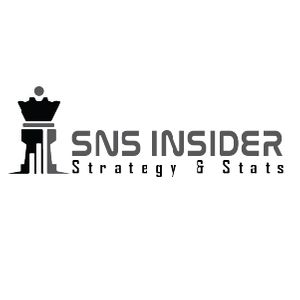
Biosensors Market Scope & Overview
According to SNS Insider’s research, the Biosensors Market is poised for continued growth due to the convergence of technological breakthroughs, expanding applications, and a growing awareness of the benefits they offer in healthcare, environmental monitoring, food safety, and beyond.
The SNS Insider report indicates that the biosensors market reached a value of USD 28.80 billion in 2022, with a projected growth rate of 7.9% from 2023 to 2030, ultimately reaching USD 52.93 billion in 2030.
In an ever-evolving world, the fusion of biology and technology has given rise to a groundbreaking field known as biosensors. These innovative devices have become instrumental in various industries, from healthcare and environmental monitoring to food safety and beyond. Biosensors are sophisticated tools that leverage the marvels of biology to detect and quantify specific substances, allowing for real-time data collection and analysis. In biotechnology, biosensors are essential for monitoring fermentation processes, measuring the concentration of specific molecules, and optimizing the production of biopharmaceuticals.
Get Free Sample Report of Biosensors Market @ https://www.snsinsider.com/sample-request/1312
Key Players Covered in Biosensors market report are:
Abbott Laboratories
Bayer AG
AZUR Environmental
Biosensor BV
DuPont Biosensor Materials
Cranfield Biotechnology Centre
Pinnacle Technologies Inc.
Johnson & Johnson
Ercon, Inc.
EG & IC Sensors, Inc
Strategic Diagnostics
Innovative Biosensors Inc.
Sysmex Corporation
LifeScan, Inc.
QTL Biosystems,
Molecular Devices Corp.
Roche Diagnostics.
Market Analysis
The biosensors market has witnessed substantial growth in recent years, driven by a confluence of factors that have spurred innovation and increased adoption across various industries. Biosensors are finding widespread use in the healthcare sector for applications such as glucose monitoring, cardiac biomarker detection, and drug delivery systems. The rising prevalence of chronic diseases, an aging population, and the demand for point-of-care diagnostics are propelling the growth of biosensors in healthcare. Continuous advancements in nanotechnology, materials science, and biotechnology are enhancing the sensitivity, selectivity, and durability of biosensors. Miniaturization and integration with mobile devices have made biosensors more accessible and user-friendly. The popularity of wearable health devices, such as fitness trackers and smartwatches, has increased the demand for biosensors. These sensors can monitor various health parameters in real-time, contributing to the rise of personalized healthcare.
Biosensors Market Segmentation as Follows:
BY PRODUCT
Wearable Biosensors
Non-Wearable Biosensors
BY TYPE
Sensor Patch
Embedded Device
BY TECHNOLOGY
Piezoelectric Biosensors
Thermal Biosensors
Electrochemical Biosensors
Optical Biosensors
Nanomechanical Biosensors
BY APPLICATION
Medical Testing
Industrial Process
Agricultural Testing
Home Diagnostics
Research Labs
Environmental Monitoring
Food & Beverages
Biodefense
Segmented by Region/Country:
North America
Europe
China
Japan
Asia Other
Get Free Quarterly Updates. Click on the link to enquire more @ https://www.snsinsider.com/enquiry/1312
Impact of Recession
Recessions can have a multifaceted impact on the biosensors market, including reduced funding, slower innovation, market consolidation, shifting priorities, funding challenges, price sensitivity, and adoption delays. However, the long-term outlook for biosensors remains promising, as their importance in healthcare and research is unlikely to diminish, and they may find new opportunities for growth and adaptation in response to economic challenges.
Impact of Russia-Ukraine War
The Russia-Ukraine war has had a mixed impact on the biosensors market, with disruptions in supply chains and geopolitical uncertainties posing challenges. However, the increased demand for biosensors in healthcare, diversification strategies, and the emergence of new applications in security and defense have also created opportunities for growth and innovation in the biosensors sector. The market’s resilience and ability to adapt to changing circumstances will play a crucial role in shaping its future trajectory.
Key Regional Development
North America, particularly the United States and Canada, are at the forefront of biosensor technology development. The presence of leading research institutions, innovative startups, and a favorable regulatory environment has fostered rapid advancements in biosensors. Asia-Pacific has seen the emergence of numerous biosensor startups, leveraging the region’s strong manufacturing capabilities and tech-savvy workforce. Countries like China and India are witnessing rapid economic growth, leading to increased healthcare spending. This, in turn, is driving the demand for biosensors, especially for point-of-care diagnostics in remote areas.
Key Takeaway from Biosensors Market Study
-In recent years, the market has witnessed a profound shift, with the wearable biosensors segment emerging as a dominant force. These innovative devices have revolutionized healthcare by offering real-time monitoring of various physiological parameters, such as heart rate, glucose levels, and even hydration status.
-While wearable biosensors are garnering significant attention, the medical testing segment remains a powerful contender in the market. This segment primarily includes diagnostic biosensors used in laboratories and point-of-care settings. Several factors contribute to its enduring relevance and potential for growth.
Recent Developments Related to Biosensors Market
-GrapheneDx, General Graphene, and Sapphiros have joined forces in an exciting collaboration aimed at pushing the boundaries of medical diagnostics through the development of innovative graphene-based in-vitro diagnostic (IVD) biosensors.
-Sencure, a Dutch biotechnology company, has recently secured €5 million in funding to accelerate the commercialization of its groundbreaking SNCE-800 biosensor chip. This exciting development marks a significant step forward in the field of biosensing technology.
Table of Content – Analysis of Key Points
1. Introduction
2. Research Methodology
3. Market Dynamics
4. Impact Analysis
4.1 COVID-19 Impact Analysis
4.2 Impact of Ukraine- Russia war
4.3 Impact of ongoing Recession on Major Economies
5. Value Chain Analysis
6. Porter’s 5 forces model
7. PEST Analysis
8. Biosensors Market Segmentation, By Product
9. Biosensors Market Segmentation, By Type
10. Biosensors Market Segmentation, By Technology
11. Biosensors Market Segmentation, By Application
12. Regional Analysis
13. Company Profiles
14. Competitive Landscape
15. Conclusion
Buy Single User PDF @ https://www.snsinsider.com/checkout/1312
Contact Information:
Contact Us: Akash Anand – Head of Business Development & Strategy [email protected] Phone: +1-415-230-0044 (US) | +91-7798602273 (IND)
Tags:
Go Media, BNN, iCN Internal Distribution, Extended Distribution, Research Newswire, English
